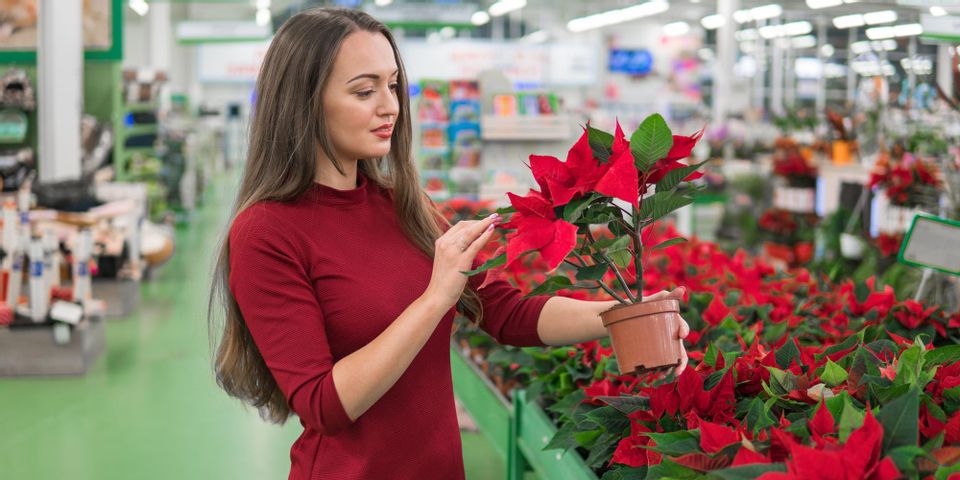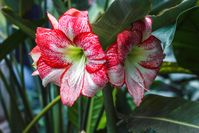5 Types of Holiday Plants to Keep Away From Pets

Plants may seem like a harmless item to decorate your home with during the holidays. However, some types of seasonal flora can be dangerous if ingested by cats and dogs, causing a variety of animal health problems that may require treatment from a veterinarian. To help you celebrate the winter season in a pet-friendly fashion, here are a few common plants to avoid during the holidays—and a few safe alternatives that look just as appealing.
5 Holiday Plants That Are Poisonous to Pets
1. Mistletoe
Despite its reputation for promoting holiday affection, mistletoe is anything but sweet for cats and dogs. This green plant contains a variety of harmful components—including phoratoxin—that can cause animals to experience stomach upset, respiratory complications, hallucinations, and a dangerous decline in blood pressure. Too much of these toxins may also cause seizures and death. To keep your home safe, try hanging Christmas Cactus instead.
2. Poinsettia
Known for their large, deep-red leaves, poinsettias can add a lot of warmth to the holiday scene. Unfortunately, these plants can cause a variety of digestive issues in pets—such as nausea, vomiting, and diarrhea. While consuming poinsettias may not necessarily present enough danger to require treatment from a veterinarian, it’s still a good idea to opt for non-toxic red flowers instead—including roses and petunias.
3. Amaryllis
 Eating the leaves of this winter-blooming flower can cause intestinal distress in cats and dogs. Consuming the actual bulb, however, can lead to serious neurological problems that require immediate care from a veterinarian. If you’re looking for a visually arresting flower that is safe for pets, snapdragon is a colorful option that can bloom in the winter.
Eating the leaves of this winter-blooming flower can cause intestinal distress in cats and dogs. Consuming the actual bulb, however, can lead to serious neurological problems that require immediate care from a veterinarian. If you’re looking for a visually arresting flower that is safe for pets, snapdragon is a colorful option that can bloom in the winter.
4. Oleander
Despite its delicate appearance, oleander is highly toxic to both cats and dogs. Depending on the size of your pet and amount ingested, this flower can cause drooling, digestive issues, colic, depression, and death. To achieve a similar look, orchids are a non-toxic flower that can provide a safe alternative.
5. Holly
Holly berries can cause vomiting and diarrhea if ingested by cats and dogs. The spiky leaves can also injure the mouth, throat, and other soft tissues. If you want to decorate with a safe berry-filled plant, try autumn olive instead.
If you suspect that your pet has consumed any toxic substance—including plants—it’s important to take fast action and seek help from an emergency vet at Rolling Hills Veterinary Hospital. Offering extended evening and weekend hours, this Columbia, MO veterinarian is a dependable resource for immediate care. Using advanced solutions, this team will work to eliminate dangerous toxins from your pet’s system and treat any health problems resulting from the poison. Visit this vet clinic online to learn more about the ways they can support your pet’s wellness. To schedule an appointment, call (573) 449-7387 to reach the Buttonwood Drive location or (573) 449-3791 for the Keene Street office.
About the Business
(5 reviews)
Have a question? Ask the experts!
Send your question

